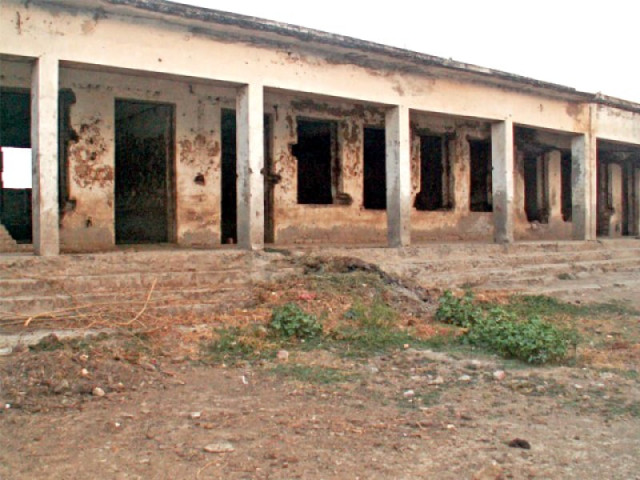Joint efforts: ‘Govt cannot manage education sector on its own’
Speakers highlight the role of public-private partnerships in Sindh's education.

Abandoned school in the territory of sindh. STOCK IMAGE
Sadiqa Salahuddin, the executive director of the Indus Resource Centre, explained the reasons behind public-private partnership in education (EPPPs) at a session titled 'Public-Private Partnership in Education: Challenges and Opportunities', organised in collaboration with the Institute of Development and Economic Alternatives (Ideas) and Institute of Social and Policy Sciences on Wednesday. It highlighted the role of such partnerships, which often take the shape of school adoption programmes in Pakistan.
"EPPPs can be seen as an innovative means of financing education, drawing upon the best aspects of the public and private sectors with the potential to resolve deep systematic problems in the education system, such as access, quality and equity," said Ideas research fellow Dr Rabea Malik, citing a definition drafted by Elizaboth King, the education director of the World Bank's Human Development Network.
Malik asserted that the state must be the largest provider of education services, catering to the vulnerable sections of society. "The potential of the state to scale up and sustain good practices should remain unparalleled," she commented, adding that whether or not EPPPs delivered, the government itself needed reforms and had to take the responsibility. "The private sector cannot do anything on its own."
Focusing on partnerships for management in the education sector, such as the Adopt-a-School (AAS) model, she said that these offered a way for the private sector to be involved in reforming the quality of education as well as deal with governance constraints.
Referring to a survey conducted by Ideas, Malik said that 19 per cent of principals in the adopted schools were more likely to receive leadership training, while 30 per cent of them were more likely to receive support in planning the school development. Meanwhile, 19 per cent of these principals are also more likely to exercise their decision-making powers in suspending teachers.
Salahuddin was, however, of the opinion that partnerships such as AAS were only fruitful if there was a win-win situation for both the partners — the public sector and the private sector. "Otherwise the partnership dies."
Terming AAS as a risky policy, she pointed out that there had been no accountability in such programmes on the part of the state for the past 30 years. "The state has neglected its basic functions, leading to the emergence of this concept to counter its weaknesses," she remarked. "In the rest of the world, is mass education provided by the public sector or the private sector?" she asked.
Meanwhile, the director of Public Private Partnership NODE in the Sindh government, Tauseef Lateef, presented a counter-policy for the Sindh Education and Management Organisation. He claimed that AAS was a philanthropy model, while his proposal was a business model based on key performance indicators. "Only reputable educational organisations will be given the responsibility of adopting schools in the model I have proposed," he said, adding that if these organisations performed, they would be compensated for their investment.
Published in The Express Tribune, May 2nd, 2015.



















COMMENTS
Comments are moderated and generally will be posted if they are on-topic and not abusive.
For more information, please see our Comments FAQ